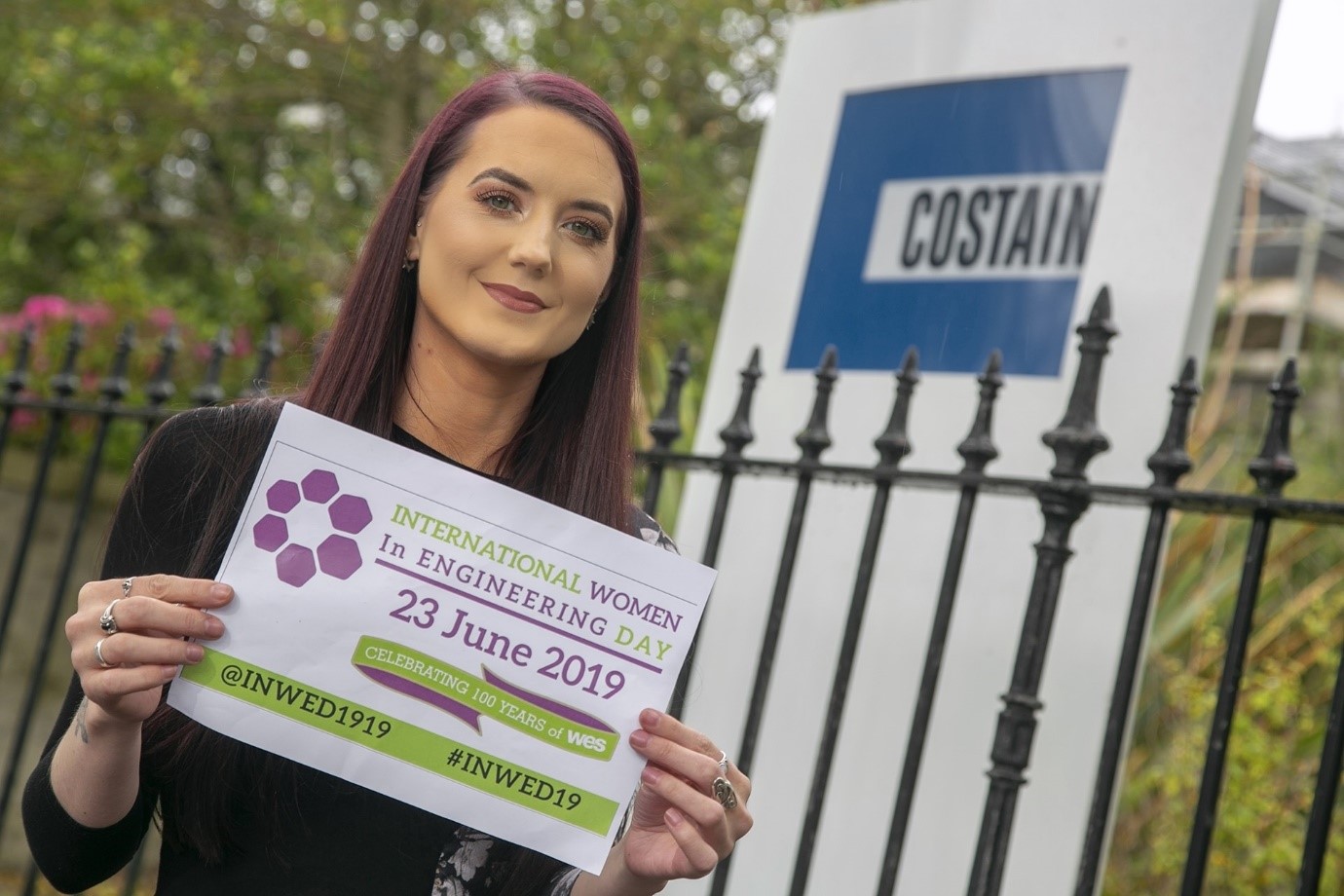Why there’s no such thing as a “typical” Engineer anymore
Author: Amie Dornan, process engineer
‘You don’t look like a “typical” engineer’ is a remark I often hear when I explain to those outside the industry what I do for a living. To me, there’s no such thing as a “typical” engineer anymore. In celebration of This is Engineering Day, 6 November 2019, I am reflecting on my career with the hope of shedding some light on why that is as well as the opportunities available for women interested in the engineering industry.
Throughout my seven-year career, I’ve found engineering to be a positive and collaborative profession. This has been true since a work placement during a summer break from university 10 years ago where I was reviewing P&IDs (piping and instrumentation diagrams) at an engineering firm, to my position today where I’m trusted by Costain to handle complex projects with oil majors.
Some of my introverted qualities, allied to the issue of confidence that many young professionals must overcome, meant it took a little time in those early days for me to find my feet. This wasn’t helped by events like going to witness a pump test on a vessel at Aberdeen Harbour and being given an overall, boots and hard hat that were not suitable for my stature which resulted in mild embarrassment! Regardless, I got the job done and through my own endeavours as well as colleagues passing on advice and knowledge, I am pleased to have evolved alongside an increasingly dynamic industry.
A former Banchory Academy pupil, I graduated with a bachelor’s degree in chemical engineering from the University of Strathclyde in 2012 and went on to join Costain’s three-year graduate scheme.
Costain is a smart infrastructure solutions company working across a wide range of sectors including energy, transportation and water. The graduate programme gave me a broader engineering base to build on, equipping me with an understanding of other skills. This approach has proved particularly useful given engineers today are becoming more integrated in their approach, meaning we can work across several disciplines.
I have handled a broad range of projects. I was pleased to have the opportunity to chair meetings and project manage; oversee front end engineering design studies, process simulations; feasibility and concept studies; production of all process deliverables; technical safety projects and provide QHSE (quality, health, safety and environment) support. A three-month secondment to our Manchester office also increased my level of experience.
At present, I’m really enjoying working on a detailed design study on a refinery near Liverpool, where my work scopes include a full hydraulic study of the system, production of the process datasheets and calculations for the main equipment. I have other responsibilities including being the HSE (health, safety and environment), business continuity and information security champion for the Aberdeen office meaning I’m responsible for the upkeep of four ISO (International Standards Organization) accreditations. I also manage our FPAL (First Point Assessment Limited) accreditation. We recently attained our highest ever scores following our latest FPAL audit for QHSE systems.
When it comes to highlights of my career so far, being a project manager and chairing meetings as part of an oil major’s portfolio team is among my favourites. Positive feedback from the client’s senior management after my first two project meetings gave me a real boost, especially given the individual who provided the feedback is highly respected within the organisation. These experiences came about because of hard work, dedication and a willingness to increase my knowledge and understanding of our industry.
Being a member of the SPE (Society of Petroleum Engineers) Young Professionals Committee has aided this and enabled me to broaden my network and increase my understanding of different engineering disciplines. Recently, I arranged an evening talk on the importance of carbon capture and the future of the oil and gas industry as part of the SPE group’s Simplified Series. It’s important to keep up to date with the latest industry thinking. The group also has a programme called TechTours which involves site visits and soft skills workshops as part of the Unplugged 360 series.
By the end of the year, I’m hoping to become a chartered engineer with the IChemE (Institution of Chemical Engineers).
Encouraging the next generation of engineers is extremely important to me. I’m a STEM (science, technology, engineering & maths) ambassador which involves going to schools to help teachers with delivering STEM subjects and highlighting my career path. Pupils have responded well to the engineering challenges they have been set and it’s encouraging to see the future talent. Giving young people, girls in particular, an insight into engineering at an early age can only help put it in the mix as a career choice further down the line and I’m proud to be a part of that.
It’s pleasing to see Costain take the lead when it comes to women in the workplace. I’m pleased to work for a company that has been named in The Times’ Top 50 Employers for Women for second the successive year. In addition, Dr Maxine Mayhew was recently appointed managing director of our natural resources division and sits on the Costain executive board so it’s inspiring to see women engineers be represented at the highest level in my organisation.
There will always be a need for engineers and, should you wish, it’s a career that can take you to many places and many different industries. My advice to those exploring a future in the industry is to not let preconceptions of a ‘male dominated’ environment stop you from fulfilling your career goals. Engineering is open to all that have a passion and desire to improve people’s lives.

Organised by the Royal Academy of Engineering, This Is Engineering Day is an opportunity to celebrate the variety of roles engineers play and the contribution they make to all of our lives, as we broaden perceptions of the profession.
Follow on social media #ThisIsEngineering #TEWeek19 @ThisisEng

